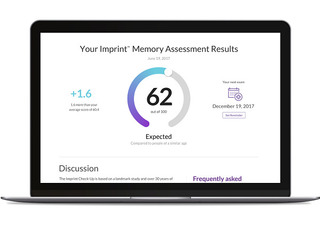
AstronauTx, developing treatments for Alzheimer's, raises $59M Series A
The startup works in partnership with UCL and is backed by Novartis and UK gov't funds
In the United States alone, about 10.7% of people age 65 and older are living with Alzheimer's – the most common form of dementia. That number is projected to grow, as the size of the population in this age group increases. This disease is not just about memory loss: Alzheimer’s kills more than breast cancer and prostate cancer combined, according to the Alzheimer's Association. And the organization calls the condition one of the costliest to society, estimating the costs to rise from $345 billion in 2023 to nearly $1 trillion in 2050. There’s no cure for the disease – only treatments to slow its progression.
There are companies taking strides in making novel treatments for patients with Alzheimer's. Among them is AstronauTx, a UK biotech developing a number of “small-molecule therapeutics to restore dysregulated physiology.”

AstronauTx, aiming to develop novel treatments for Alzheimer’s disease and other neurodegenerative disorders, recently celebrated closing its Series A round of funding with £48 million ($58.2 million) in new capital.
Leading the round was Novartis Venture Fund, a Swiss therapeutics VC firm that backed Alios BioPharma and Catalyst Biosciences. Other participating investors were Australian life sciences VC Brandon Capital, Princeton, NJ-based pharma giant Bristol Myers Squibb, Amsterdam-based EQT Life Sciences investing from the LSP Dementia Fund, and MPM Capital in Boston.
A main participant in this financing was the government-launched Dementia Discovery Fund (DDF), which positions itself as “the world’s largest family of specialized venture capital funds that invests exclusively in companies developing or enabling novel therapeutics for dementia” and is managed by SV Health Investors.
It was DDF that founded AstronauTx in 2019 with backing from the University College London's (UCL) Technology Fund and the UK state Future Fund. AstronauTx spun out from UCL Business (UCLB), building on research from the Alzheimer's Research UCL Drug Discovery Institute (UCL DDI).
Now, UCL DDI and AstronauTx continue in their collaboration to develop new drugs that reset the behavior of certain support cells in the brain. These cells, called astrocytes, are crucial for the proper functioning of nerve cells, but become damaging in people with Alzheimer’s, according to a UCL statement.
“…New medicines are on the way,” UCL DDI’s chief scientific officer for Alzheimer’s research, Professor Fiona Ducotterd, said in a release. “It’s essential that we continue to break ground discovering and developing the next generation of Alzheimer’s and other dementias therapeutics to help all patients and their families living with these terrible conditions.”
AstronauTx said it will use the new capital to advance its small-molecule drugs, including a clinical study in patients with Alzheimer's disease in its lead project. The treatments are expected to provide both symptomatic and disease-modifying benefits.
Earlier this year, AstronauTx partnered with Danish public biotech company Saniona, aiming to identify new treatments by modulating a novel, undisclosed ion channel target. In September 2023, AstronauTx was awarded an Innovate UK grant to fund preclinical work on one of its programs.
"We now know that the processes causing Alzheimer's and other similar diseases are modifiable,” Dr. Ruth McKernan, co-founder of AstronauTx, said in a statement last week. “Progress towards a compendium of new drugs against these devastating diseases is thankfully well underway. Our treatments will be oral drugs, applicable across multiple neurodegenerative conditions, and additive with mechanisms that are currently in late-stage development.”
Image: AstronauTX


